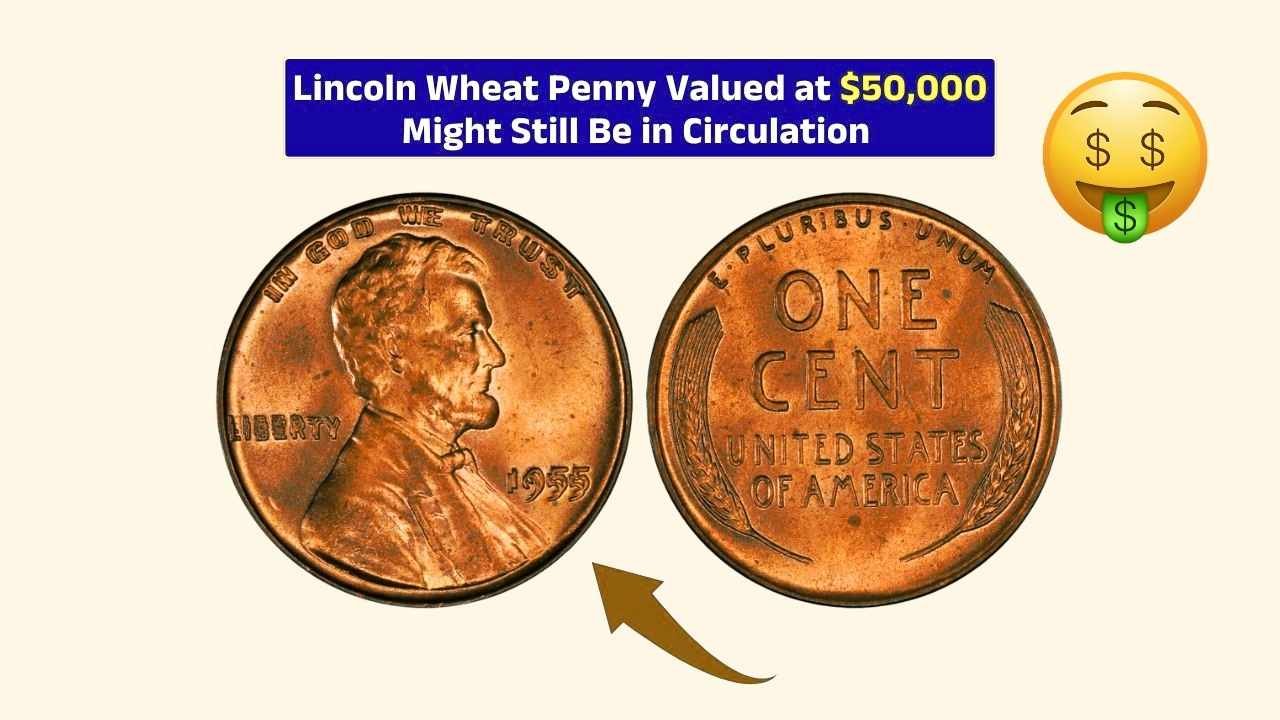Could a penny in your pocket be worth $50,000? The Lincoln Wheat Penny, minted from 1909 to 1958, is a common coin, but some rare ones are worth a fortune. Certain versions, especially those with minting errors or from specific years, have collectors willing to pay big money. These pennies might be hiding in your spare change, coin jar, or even a cash register. A quick check could turn a single cent into a life-changing discovery.
A Coin with a Story
The Lincoln Wheat Penny was first made in 1909 to honor Abraham Lincoln’s 100th birthday. It was the first U.S. coin to feature a real person’s face, designed by Victor David Brenner. The back shows two wheat stalks, which is why it’s called a Wheat Penny. Billions were produced, and many are still around today. While most are worth just one cent, rare ones from years like 1931 or with errors can fetch thousands, making them a collector’s dream.
What Makes These Pennies Valuable
The value of a Lincoln Wheat Penny depends on its year, condition, and any mistakes made during minting. For example, the 1931-S penny is rare because only a few were made, and one in great condition can be worth $50,000 or more. Errors, like the 1955 doubled die penny, where the date or words look blurry, can also sell for thousands. Coins in “mint condition,” meaning they look brand new, are worth more than worn ones. Collectors also look for specific mint marks, like “S” for San Francisco, which can boost value.
| Coin Feature | Value Impact |
|---|---|
| 1931-S in Mint Condition | $10,000-$50,000+ |
| 1955 Doubled Die | $20,000-$40,000 |
How to Spot a Rare Penny
Checking for a valuable Lincoln Wheat Penny is simple if you know what to look for. Start with the date; 1931-S or 1955 are key years. Look for a mint mark under the date; “S” or “D” can mean higher value. Use a magnifying glass to check for doubled die errors, where numbers or letters appear doubled. Weigh the penny; most Wheat Pennies are about 3.11 grams. If it looks shiny and has no scratches or wear, it’s more likely to be valuable. Take it to a coin shop or check online to see what similar coins are selling for.
| Coin Trait | What to Check |
|---|---|
| Mint Mark | “S” or “D” under date |
| Doubled Die | Blurry date or words |
Where to Sell Your Penny
If you find a rare Wheat Penny, don’t spend it! Get it checked by a coin dealer or a grading service like PCGS or NGC to confirm its value. You can sell it through auction sites like eBay or at coin shows where collectors gather. Local coin shops are another option, but always get an appraisal first to know its worth. Store the penny in a protective holder and avoid cleaning it, as dirt or scratches can lower its value. Be cautious of shady buyers and stick to trusted platforms or experts.
A Treasure Hunt in Your Change
Finding a $50,000 Lincoln Wheat Penny is like striking gold. These coins, tied to American history, are still out there in circulation, waiting to be discovered. You might find one in a roll of coins, an old jar, or even your pocket change. Take a moment to check the dates and details on your pennies. A rare 1931-S or error coin could be your ticket to a big payday. So, grab your spare change and start looking; a tiny penny might just hold a huge surprise.
